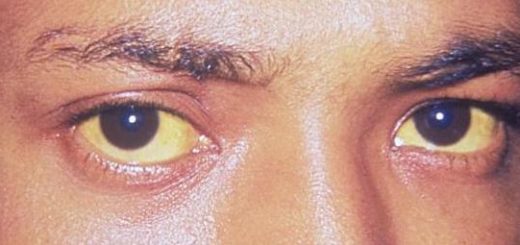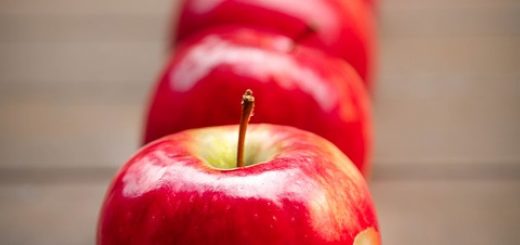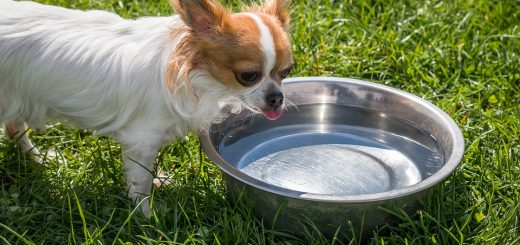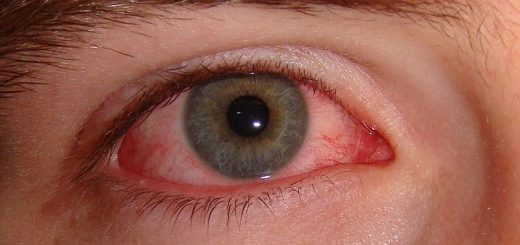19 Home Remedies for Brain Fog
Brain fog is not its own medical condition, but instead, it is a symptom of other conditions. It is also known as mental fatigue. It can sometimes challenge school and work, but it does not have to be that severe for you to have it.
What Causes of Brain Fog?
As mentioned, brain fog is more of a symptom with symptoms of its own. Brain fog can be caused by a couple things. It can be a result of stress, hormonal changes, lack of sleep, inflammation, medications, diet (and some food allergies), too much caffeine, dehydration, anemia, diabetes, hypothyroidism, migraines, refined carbs, autoimmune diseases, and Alzheimer’s.
What Symptoms Can Be Expected?
When it comes to brain fog, you might experience memory loss, poor concentration, or just not being able to focus at all, and a loss of mental clarity. Other possible symptoms include fatigue, anxiety, irritability, confusion, insomnia, depression, feeling hopeless, and low motivation.
Home Remedies for Brain Fog
-
Sleep
One of the causes of fog brain is lack of sleep. So one way to get rid of it could just be to get more sleep. Try your best to get the normal eight or nine hours that doctors are always talking about.

If you cannot get enough sleep at night, try to take naps during the afternoon
-
Reduce Sugar and Processed Food Intake
Refined sugars, like artificial sweeteners, are bad for both your weight and can added to the trouble of brain fog. Eating too much sugar can actually make you more sleepy because your body has to do so more to keep with breaking the sugar down. Artificial sweeteners and processed food can make it hard to focus.
However, you do not want your body’s sugar level to get too low as that can also cause brain fog. Try to stick to natural and organic sweeteners like stevia and honey. Eating unprocessed foods can help you to focus and can increase your memory.
-
More Protein
Protein is very important to the body because they practically run everything. So if there is a protein deficiency, it means that there is a lack of amino acids. To get more protein, you can eat dairy products, meat, eggs, nuts, beans, and fish.
-
Healthy Fats
Normally, fats are bad for your body. In this case, there are healthy fats that can help you in a bunch of different ways. Healthy fats help to build more happiness causing hormones while also fighting inflammation.
Because the healthy fats fight inflammation and make happy hormones, this can also fight the depression that can come with brain fog. The healthy fat you need to do all of this is that omega-3 you always hear about. You can get it from wild-caught fish, nuts and seeds, berries, and grass-fed beef or eggs.
-
Exercise
Regular exercise can help to balance hormones, help you to sleep better, and can assist with insulin resistance. Both of these can do amazing things for battling the fatigue that you might suffer through because of brain fog.
-
Lower Stress Levels
Too much stress can produce too much cortisol. Cortisol has a way of making you feel hyper but tired at the same time. Cortisol can also mess up hormone balance, causes weight gain, depression, insomnia, and an inability to perform well in bed.
To relax, you can try yoga, deep breathing, exercise, avoid caffeine, and do not eat processed foods. Try meditation or let yourself go and just belt it out along with some of your favorite music.

If you are new to meditation, try listening to a guided meditation video
-
Avoid Food Allergens
Different food allergies can affect people in different ways. While this is something that you might have to the doctor for, there are still amazing things that looking into food allergies can do.
If you are against going the doctor for this, there is a way that you can to check yourself, but it is not going to be nearly as exact as it would as if you went to the doctor. To do the food allergy test yourself, you need to keep a food journal of everything you eat and drink. Start with one food group at a time. You need to completely drop the food group and then slowly introduce different foods from the food group. If you start to feel worse again, the food journal will help you to know what food it was that give you so much trouble. If you do not have trouble with that one food group, you can start into the next food group.
-
B Vitamins
There are different variations of vitamin B and all of them are special in helping you to feel less sluggish and to feel happier. So eating foods rich in vitamin B or vitamin B supplement pills. The supplements can come in capsules, gels, or just normal pills.
-
Diet Changes
It was mentioned that food allergies can cause trouble with brain fog, but there are foods in general that can trigger increased problems with it. Gluten is one of the leading triggers of brain fog. Cutting gluten from your diet can improve verbal fluency, focus, and memory.
Having lots of fat in your diet is not good for you. Omega-3 fatty acids are good, but there lots of other kinds of food that are not nearly as good for you. High-fat diets can make focusing more difficult.
-
Music
Music can help you to calm down and stay calm, but it can also help you to stay focus. The ‘rumors’ of classical music helping you to study is not really a myth. When it comes to classical the music can help you focus. Try listening to Mozart the next time you need to focus on a task.
-
Water
Water is very important for a lot of things. Water actually makes up 73 percent of the human brain. Dehydration can cause a whole range of problems, one of which is decreased brain function, lack of alertness, lack of concentration, and shortened memory.

Try to drink at least eight glasses of water a day
-
Hormonal Changes
The changes of hormones make it hard to sleep, can make it harder to remember things, and make it more difficult to concentrate. The most common time that hormones affect someone enough for them to suffer fog brain is normally when a woman is going through menopause or a pregnancy.
You also may want to consider that your body could be low on thyroid hormone. For the hormone your thyroid produces, you are going to need to ask your doctor as there is no sure way to know whether or not you have this problem without a doctor’s tests.
-
Magnesium
Magnesium is hugely important for your brain functions. This great mineral also does amazing things for relieving depression and for helping you to sleep. To take in more magnesium, you can either take supplements or eat more foods that are naturally rich in magnesium. Some foods that are high in magnesium include avocado, nuts, beans, whole grains, fish, leafy greens, soy products, and dark chocolate.
-
Folate
A deficiency in folic acid can hinder and slow cognitive functions. Combining folic acid and B vitamins can vastly improve cognitive functions. Like with magnesium, you can either take folate supplements or eat foods that are rich in folate. Some foods that are rich in folate include beans, eggs, beets, dark leafy greens, citrus fruits, and asparagus.
- No Smoking
All the chemicals in cigarettes can actually stop your brain from functioning properly and can age your brain more quickly, heart diseases, and inflammation of the brain. Quitting smoking can help your brain to clear itself of brain fog while helping your body in many other ways as well.
-
Anxiety Levels
Too much anxiety can result in brain fog, so keeping yourself from getting too anxious can keep your mind more clear. Pet a dog or cat or play with one, join a book club, try a new sport, laugh, or take a nice bath to reduce your anxiety levels.

Simply looking at pictures of cute animals can help to take the edge off
-
Improve Digestion
Believe it or not, but how well your digestion goes can affect how well your brain works. When constipated, the pressure of the extra waist can cause swelling which can tire your brain because it has to work to calm the swelling.
To avoid this, you need dairy and other anti-inflammatory foods. You can get both of these in grains, green veggies, legumes, and healthy fats.
-
Distractions
This is one of the easiest things on this list. Well, it seems like it would be easy, but it might be harder for others. One symptom of brain fog is already a lack of concentration. Everyone knows what it is that distracts them, you want to do your best to clear your work pace of these things that distract you.
-
Detoxify
Foods have different heavy metals from the kinds of soil that it was grown in. Some foods can contain pesticides, lead, and even mercury. So with these metals, they can affect your cognitive functions and can increase inflammation. Using different anti-inflammatories or antioxidants can help you pretty decently with this.

Try growing your own food so you know it is safe to eat
Which of these home remedies will you try to combat your brain fog? Comment below!
Sources
https://www.naturalstacks.com/blogs/news/brain-fog
https://www.healthline.com/health/brain-fog
https://www.healthline.com/nutrition/10-foods-high-in-magnesium
https://www.healthline.com/nutrition/foods-high-in-folate-folic-acid








